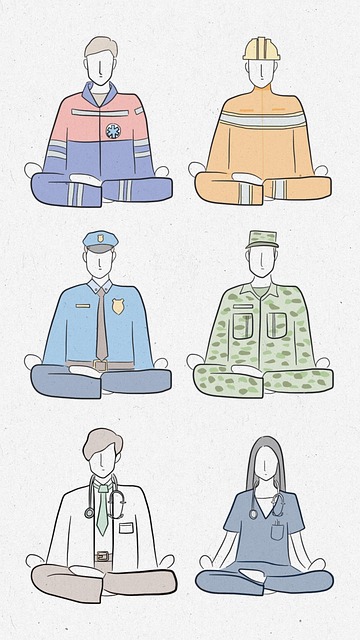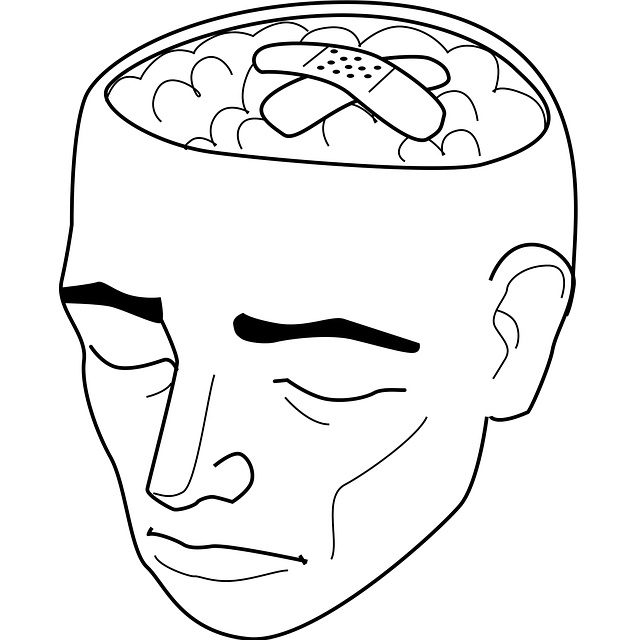Therapy for Psychological Testing provides specialized grief counseling, guiding individuals through complex emotional journeys of loss. Through expression and self-awareness, clients learn healthy coping strategies using CBT, mindfulness, and narrative therapy. This holistic approach, starting with testing to assess emotional states, equips individuals with tools for long-term mental health and resilience against future challenges stemming from bereavement.
Grief and bereavement are inevitable parts of life, yet coping with loss can be profoundly challenging. This article explores the crucial role of counseling in navigating these emotional journeys. We delve into understanding grief, its various stages, and the unique challenges each individual faces.
Learn about loss grief and bereavement counseling, its techniques, benefits, and how it aids in healing. Discover the therapy process, including psychological testing, as a tool for personal growth and recovery. Find solace and guidance on your path to healing.
- Understanding Loss, Grief, and Bereavement: The Need for Counseling
- What is Loss Grief and Bereavement Counseling? Techniques and Benefits
- Navigating the Therapy Process: Psychological Testing and Recovery Journey
Understanding Loss, Grief, and Bereavement: The Need for Counseling

Understanding loss, grief, and bereavement is a complex process that goes beyond mere time or space. It involves a profound emotional journey where individuals navigate through stages of shock, denial, anger, bargaining, depression, and acceptance, among others. This intricate experience can significantly impact one’s mental health, making therapy for psychological testing crucial in managing these intense emotions.
Counseling offers a safe space for individuals to express their feelings, share stories, and engage in self-awareness exercises. It facilitates the development of effective communication strategies, enabling people to process their loss while also fostering healthy self-care practices. Through counseling, individuals can learn coping mechanisms tailored to their unique experiences, helping them navigate this challenging period with support and understanding.
What is Loss Grief and Bereavement Counseling? Techniques and Benefits

Loss grief and bereavement counseling is a specialized form of therapy designed to support individuals navigating the profound emotional impact of loss. This type of counseling helps people process and cope with grief resulting from various forms of loss, including death of a loved one, separation or divorce, job loss, or other significant life changes that lead to feelings of deep sorrow and distress. The primary goal is to provide a safe space for individuals to express their emotions, gain insights into their coping mechanisms, and develop healthy strategies for managing grief over time.
Counselors employ various techniques tailored to each individual’s unique needs, such as cognitive-behavioral therapy (CBT), mindfulness practices, and narrative therapy. CBT helps clients identify and challenge negative thought patterns associated with loss, while mindfulness encourages present-moment awareness and acceptance of emotions. Narrative therapy supports individuals in crafting meaningful stories around their experiences, fostering a sense of empowerment and resilience. By addressing not only the emotional aspects but also practical considerations like adjusting to life changes, counseling offers holistic support that enhances mental health and well-being during the grieving process. The benefits extend beyond immediate relief, as ongoing practices learned through counseling can contribute to long-term psychological resilience, especially in navigating challenges that arise from loss and cultivating a sense of meaning in life post-bereavement. This therapy is integral for those seeking healing and adaptation within a supportive framework, addressing not just symptoms but the underlying mental health needs associated with profound loss.
Navigating the Therapy Process: Psychological Testing and Recovery Journey

Navigating the therapy process involves a multifaceted approach tailored to each individual’s unique experience with loss and grief. Initially, psychological testing can play a crucial role in understanding the depth and nature of one’s emotional state. These assessments provide valuable insights into coping mechanisms, personality traits, and potential underlying issues that contribute to feelings of bereavement. Through this process, clients gain awareness, enabling them to begin their journey towards recovery with a clearer direction.
As therapy progresses, the focus shifts to practical strategies for stress reduction methods and emotional intelligence development. Therapists guide individuals in cultivating compassion cultivation practices, fostering self-care routines, and building resilient coping mechanisms. This holistic approach ensures that clients not only process their grief but also learn valuable skills to navigate future challenges, promoting long-term emotional well-being and a sense of healing.
Loss, grief, and bereavement counseling offers a lifeline for those navigating the complexities of profound emotional loss. By employing evidence-based techniques tailored to individual needs, this therapy provides a safe space to process pain, understand coping mechanisms, and foster healing. The journey through psychological testing and recovery is transformative, empowering individuals to find meaning and move forward with resilience. Embracing therapy as a supportive companion can be life-changing, enabling one to navigate the depths of grief and emerge with renewed hope and inner strength.








